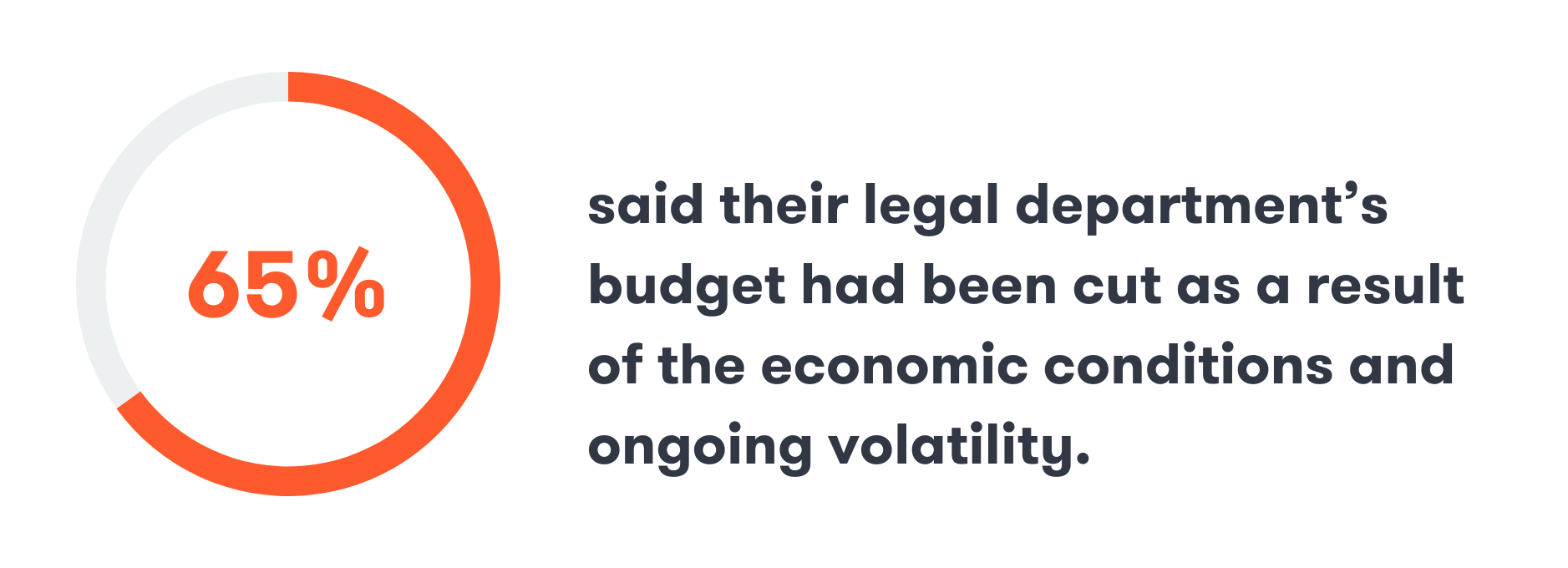The Future for Alternative Legal Service Providers is Strong
March 2024
By
Wendy Thurm

For more than 25 years, Alternative Legal Service Providers (ALSPs) have played an increasingly important role in the legal economy in the United States and around the world. ALSPs provide a range of services that drive efficiencies and cost savings for corporate legal departments.
These services include flexible and specialized legal expertise at rates far below what large and medium-sized law firms charge and technological solutions that replace processes previously performed by lawyers.
What makes these legal service providers alternative? They sit outside the traditional law firm model, which depends heavily on a billable hour structure that incentivizes inefficient work. ALSPs align with the business objectives of their corporate clients.
The history of the ALSP industry
The ALSP market began with companies offering cost-efficient and less expensive alternatives to corporate legal departments for completing low-leverage, repetitive legal tasks - for example, revising contracts and confidentiality agreements. Quickly, GCs saw the benefit of using flexible legal services for a range of tasks they historically relied on law firms to complete. ALSPs responded by expanding the suite of services they provided.
For example, as one of the first ALSPs, since 2000, Axiom has hired former Big Law and Fortune 500 attorneys with deep experience and offered their services for more than 20+ years on an engagement-by-engagement basis to corporate legal departments ranging from secondments to structured teams to counsel and beyond.
Advances in technology fueled even further growth in the ALSP market. Companies developed software that could search for, review, and manage documents on a large scale. This technology changed what was once a time-consuming and expensive part of litigation into a faster and more efficient process that freed in-house counsel to handle higher-level tasks.
According to a biannual survey conducted by Thomson Reuters Institute in partnership with The Center on Ethics and the Legal Profession at Georgetown Law and Oxford University’s Saïd Business School, the ALSP market grew 145% since 2015 and reached $20.6 billion in annual gross revenues by the end of FY 2021.
The Thomson Reuters survey also reported that more than 40% of law firms view ALSPs as a threat to their economic model.
When you look at the scope of services provided by ALSPs, it’s no wonder Big Law is concerned about its profitability and sustainability.
Today, corporations in the United States, Canada, the European Union, the United Kingdom, Asia, and Australia rely on ALSPs for a wide variety of legal services that were previously performed only by law firms. These include:
- Practice area-specific legal services
- Regulatory risk and compliance
- Merger and acquisition due diligence
- Management of intellectual property assets
- Contract management
- Legal research
- Factual investigation
- Document review and coding
By taking on these tasks at fees significantly below what law firms charge, ALSPs add significant value to corporate law departments. ALSPs free up internal teams to work on higher-value projects, add specialized expertise, and help in-house legal teams to meet peak demand without adding to the total headcount - all while reducing costs.
The pandemic changed everything
When the world all but shut down during the first months of the COVID pandemic in 2020, many people used all those hours indoors to reevaluate their jobs and their career goals. Employees across multiple industries came to the realization that they weren't satisfied with their work environment, the industry they were in, or their work-life balance. Many left their jobs.
These departures came to be known as the Great Resignation.
Law firms and corporate legal departments were not immune to these changes. Top legal talent at AmLaw 200 firms and Fortune 500 companies headed for the exits in 2020. Even as the pandemic eased, the departures continued.
A 2023 survey by Dutch information services company Wolters Kluwer reported that 70% of in-house counsel and 58% of law firm lawyers were very to somewhat likely to leave their current position in the next year.
ALSPs like Axiom became the perfect landing spot for experienced and highly skilled lawyers looking to stay engaged in sophisticated legal work but with a better work-life balance. Advances in remote work technology gave these top lawyers the ability to work from anywhere at any time.
The new in-house counsel landscape
With so many talented and experienced lawyers working with ALSPs like Axiom, now is the perfect time for corporate legal departments to look at how ALSPs can improve outcomes and the bottom line.
Axiom’s 2023 survey of more than 200 GCs at companies with $250M+ in annual revenue revealed deep concern about their legal department’s ability to carry out their mission while facing budget cuts. Approximately two-thirds of respondents said their legal department’s budget had been cut as a result of the economic conditions and ongoing volatility.

More than three-quarters of GCs fear it is likely their legal department will experience a headcount freeze and 62% are very concerned that volatility will negatively impact their department’s ability to invest in effective talent and resources.
Nearly a quarter of GCs have been forced to prioritize budget over core department values.
Deputy General Counsels share the same concerns.
In 2023, Axiom released a survey of 200 DGCs at companies with more than $5 billion in annual revenue across a wide range of industries. Nearly all of the DGCs reported an increasing volume and complexity of legal matters amid budget cuts and hiring freezes.
The result? Ninety-two percent of DGCs believed their legal department was under-resourced relative to those legal matters. Ninety-nine percent said they had a shortage of specific expertise in their departments.
.png?width=1877&height=680&name=Future%20ALSPs%20Stat%201%20(1).png)
The complexity and volume of legal work are higher than ever due to global economic shifts and technological innovations like generative AI.
But the message from GCs and DGCs is clear: Corporate legal departments do not have the resources to do their jobs effectively.
The General Counsel’s dilemma
Even with tighter budgets, 40% of GCs at companies with more than $1 billion in annual revenue worldwide expect to spend more on outside counsel in 2024 than they did in 2023. Litigation, labor and employment disputes, regulatory matters, and corporate work are expected to drive the increased spending according to Thomson Reuters Institute’s 2024 Report on the State of the Legal Market.
To a great extent, increased spending on outside counsel is driven by sharply higher fees charged by law firms. Since 2019, AmLaw 100 firms have raised their rates by 6% each year, on average. Fees at the largest firms increased a record 7.9% in 2023.
The AmLaw 200 and mid-sized firms have also consistently raised rates over the last four years but at a slightly slower clip than the AmLaw 100.
Despite the soaring fees, a mere 7% of in-house lawyers view traditional law firms as a fully effective solution for their resourcing needs, according to Axiom’s View From Inside report issued in 2023.

GCs have a variety of options for controlling costs, even as law firms continue to raise their rates. They can keep more work in-house and try to automate some processes.
But the most direct way for GCs to control spiraling costs is to move work from AmLaw 200 and mid-sized firms to smaller, innovative, and less expensive firms and ALSPs.
Axiom solves the GC’s dilemma
GCs need experienced lawyers with practice area-specific knowledge to tackle their companies’ most pressing legal problems. But GCs must operate under fiscal constraints within an increasingly complex legal landscape.
Axiom can help.
With a growing network of 14,000 lawyers worldwide, Axiom provides flexible, on-demand legal talent with specialized knowledge to assist in-house legal teams at a fraction of the cost of AmLaw 200 rates. They are ready to be deployed when specific needs arise.
GCs can utilize Axiom’s In-House Solutions in three ways:
- Secondments. Secondees have the business acumen required to get the critical day-to-day legal work done at up to 50% lower rates than AmLaw 200 firms. These flexible, experienced, and high-quality lawyers can work full-time or part-time to meet the pressing demands of an in-house legal department.
- Structured Teams. Working in teams and led by experienced leaders, Axiom lawyers can tackle complex legal projects that have grown too big for in-house legal teams. Axiom draws from a deep talent pool that features more than 4,000 lawyers with experience at Fortune 1000 companies and more than 1,700 lawyers with experience at AmLaw 200 firms. Using advanced project management tools, these Axiom structured teams complete their projects at up to 50% lower rates than AmLaw 200 firms.
- Counsel. Seasoned lawyers across a variety of industries and legal specialties are available on-demand to GCs looking for experienced advice without having to pay exorbitant AmLaw 200 fees.
The Hershey Company has taken notice. For years, James Turoff, Hershey’s General Counsel, has taken advantage of Axiom’s In-House Solutions to fill staffing and expertise gaps in the company’s legal department.
"Axiom offers exactly the new paradigm the industry needs," said James Turoff, Senior Vice President, General Counsel, and Secretary of The Hershey Company. "We greatly value the relationships we have with our traditional outside counsel, and they will always play a key role in our legal strategy, but Axiom's innovative model—focused on value and flexible service delivery—is ideal for our everyday legal needs."
For Turoff and the Hershey Company, Axiom’s value proposition is unmatched in the industry.
Is Your Budget Feeling the Squeeze From Increasing Law Firm Rates?
Explore ways to optimize your legal budget. Discover where and how you can use Axiom to supplement traditional law firms and help your legal team do more for less.

Posted by
Wendy Thurm
Wendy Thurm is a writer, editor, and legal analyst. She practiced law for 18 years, primarily as a partner with a San Francisco litigation boutique firm.
Related Content
In-House Legal Team Challenges: Escape the More With Less Trap
The importance of shifting the conversation from how Legal transformation is a value-add to Legal, to how it is a value-add to the wider business.
4 Tips for Maximizing the Value of Legal Secondees
How top GCs get the most out of their flexible talent strategies while creating resilient, happy legal teams. Four tips to help maximize secondee value.
Legal Secondments: Frequently Asked Questions
Everything you need to know about legal secondments. Frequently asked questions and answers regarding secondments and secondees.
- Expertise
- North America
- Legal Department Management
- Must Read
- Perspectives
- Work and Career
- State of the Legal Industry
- Legal Technology
- Spotlight
- Solutions
- Artificial Intelligence
- Regulatory & Compliance
- United Kingdom
- Data Privacy & Cybersecurity
- General Counsel
- Legal Operations
- Australia
- Central Europe
- Commercial & Contract Law
- DGC Report
- Labor & Employment
- Regulatory Response
- Technology
- Banking
- Commercial Transaction
- Diversified Financial Services
- Hong Kong
- Intellectual Property
- Investment Banking
- Large Projects
- News
- Singapore
